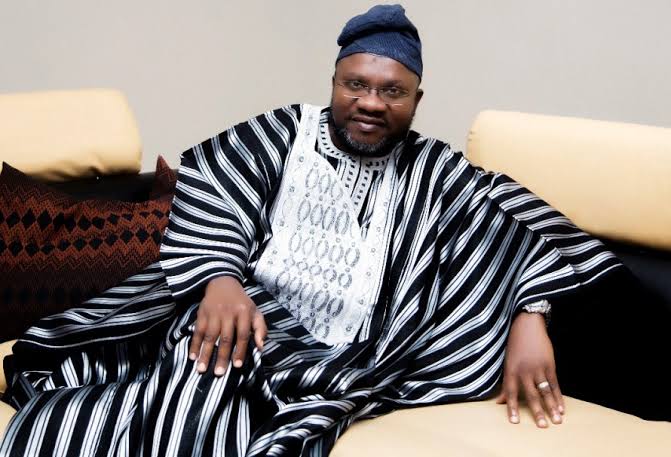BY RASHEED BOLARINWA
When President Bola Ahmed Tinubu signed landmark bilateral agreements with Brazil recently, the optimism was palpable. Brazil, once riddled with agricultural deficits and underutilised heritage, has today emerged as one of the world’s top food producers and a global tourism magnet. For Nigeria, these agreements offer a once-in-a-lifetime opportunity to redefine food security, rural development, and cultural diplomacy.
The challenge, however, is how to translate international diplomacy into tangible grassroots prosperity. Too often, bilateral agreements in Nigeria end up as impressive communiqués that gather dust in government files. What is urgently needed are visionary leaders at the subnational level—governors who can serve as laboratories of implementation, aligning state priorities with federal agreements and showing how global partnerships can be domesticated.
In Osun state, Kunle Rasheed Adegoke, SAN—affectionately called K-RAD—has crafted a development vision that mirrors the opportunities now offered by Brazil, particularly in mechanised agriculture and heritage tourism. His blueprint positions Osun as a model for how Tinubu’s foreign policy gains can be translated into real economic outcomes for ordinary citizens.
Advertisement
Brazil’s agricultural transformation is often cited as an economic miracle. In the 1970s, it was a food-deficit nation, dependent on imports for basics like milk. Today, through deliberate investment in mechanisation, farmer cooperatives, and value-chain integration, Brazil is one of the world’s largest dairy and beef exporters. This transformation is precisely what Nigeria, under President Tinubu, seeks to replicate.
At the heart of K-RAD’s plan is a structured dairy economy anchored on mechanised and domestic farming. Osun’s fertile plains and relatively stable climate make it suitable for dairy clusters where pastoralists can be resettled and integrated into modern, technology-driven cooperatives. Beyond household and subsistence herding, farmers would also engage in industrial-scale milk production with processing plants turning raw milk into cheese, butter, yoghurts, and powdered milk. This would not only cut Nigeria’s heavy dairy import bill but also create jobs across the agricultural value chain—from herders and veterinarians to logistics operators and marketers.
Mechanised crop farming is another pillar of K-RAD’s vision. With the right machinery, irrigation systems, and extension services, Osun can become a major supplier of staple crops such as maize, cassava, rice, and vegetables. Brazil’s technical expertise, which Tinubu’s government has now secured access to, can be directly localised in Osun. By partnering with Brazilian agro-engineering firms, Osun could host demonstration farms and training centers that serve as national models for scaling mechanisation and introducing young Nigerians to modern farming as a profitable enterprise.
Advertisement
The economic impact of such reforms cannot be overstated. A vibrant dairy and mechanised farming sector in Osun would stimulate rural industrialisation, reduce youth unemployment, and raise internally generated revenue. More importantly, it would provide proof that bilateral deals can have life-changing impact when domesticated at the state level. For Tinubu’s government, Osun could become the evidence that foreign policy agreements can translate into food security and prosperity in real communities.
Beyond agriculture lies another sector where Osun has an unrivalled advantage—tourism. Brazil’s Bahia, which has transformed Afro-Brazilian heritage into a billion-dollar tourism market, provides a direct parallel to what Osun could achieve with the Origin Project, K-RAD’s signature ecotourism and heritage blueprint.
The Origin Project envisions Ile-Ife, globally revered as the cradle of the Yoruba civilisation, as a cultural and spiritual home for people of African descent across the world. From interactive museums and heritage trails to cultural festivals and eco-parks, the project would position Ile-Ife as a pilgrimage town for the global Black diaspora. This ambition, which has taken years to evolve, is not far-fetched; Bahia alone draws millions of diaspora tourists annually because of its Yoruba cultural imprints. If Brazil can leverage its Yoruba heritage to attract the diaspora, surely Osun—the authentic source—can do even better.
Aside the Origin Project, K-RAD’s broader vision to make Osun Nigeria’s tourism state has seen him traverse and identify no fewer than 64 untapped tourist sites. He is willing to work with the Federal Government, development partners, local and foreign investors, and the best players in the tourism ecosystem to develop these sites. His goal is to generate jobs for Osun’s teeming unemployed youth, catalyse the state’s economic fortune, and, importantly, raise revenue for government.
Advertisement
Among the significant tourism sites he spent 17 months visiting between 2017 and 2018, during his first attempt at the Osun governorship seat under the APC, are the globally renowned and UNESCO-listed World Heritage Osun Osogbo Grove where the annual Osun Osogbo festival holds; the 36-multi-tiered Ayinkunugba Waterfalls in Oke-Ila, Ifedayo Local Government; the Erin-Ijesha Waterfalls; in Erin-Odo in Oriade Local Government area of the state and the long-abandoned Owala Dam at Oba-Oke in Olorunda Local Government. The Owala Dam, with massive untapped potential for fishing, farming, boat ride, gardening, and eco-tourism, has been neglected since 1982 by successive governments.
K-RAD also intends to work with the intellectual wealth housed in Obafemi Awolowo University and plethora of other Universities and institutions Osun is blessed to host, to drive his transformative agenda in agriculture and tourism. By harnessing both academic expertise and practical enterprise, he seeks to blend ideas with implementation in a way that creates sustainable development. This partnership between government, academia, and private investors could set Osun apart as a knowledge-driven economy.
The economic dividends of tourism are clear. Tourism is labour-intensive and creates direct and indirect jobs—tour guides, hoteliers, artisans, transporters, event managers, and more. Every festival celebrated in Ile-Ife under the Origin Project would attract foreign exchange, foster cultural diplomacy, and place Osun on the global map as Africa’s Bahia. Tinubu’s Brazil deal creates the perfect platform for exchange programmes, joint festivals, and co-investments in heritage tourism infrastructure.
More significantly, the Origin Project is not just about money—it is about identity and pride. It reconnects African-Americans, Afro-Brazilians, and Caribbeans with their Yoruba roots, deepening Nigeria’s soft power and giving Black people worldwide a spiritual and cultural home. In doing so, it cements Osun and Nigeria’s role as a global center of Black heritage, extending Tinubu’s foreign policy into the realm of cultural diplomacy.
Advertisement
If agriculture secures the stomach and tourism nourishes the soul, the combination of both creates holistic development. K-RAD’s emergence as Governor of Osun in 2026, God willing, would provide the political will and administrative structure to operationalise these ideas. His leadership could ensure that Osun becomes the model state where Tinubu’s Brazil partnership is first translated into practical success stories.
This is how legacies are cemented. For President Tinubu, having Osun emerge as Nigeria’s dairy hub and Black heritage tourism capital would be a tangible achievement that lives beyond his administration. It would show that his foreign policy is not just about signing MOUs abroad but delivering prosperity at home. And for other Nigerian states, Osun would serve as a blueprint—demonstrating that global partnerships can be localised for agriculture, tourism, and industrialisation.
Advertisement
Ultimately, the promise of the Brazil-Nigeria bilateral deal will not be measured in signing ceremonies but in transformed lives. With visionaries like K-RAD offering practical frameworks, Osun can lead the way. It is time to turn bilateral promises into local prosperity, ensuring that Nigeria not only learns from Brazil’s success but surpasses it.
Rasheed Bolarinwa, an award-winning PR & Strategic Communication professional, is a respected voice in Nigeria’s media and corporate space. Widely regarded as a strategist, he brings a development-focused perspective to public discourse. He can be reached via: [email protected]
Advertisement
Views expressed by contributors are strictly personal and not of TheCable.











